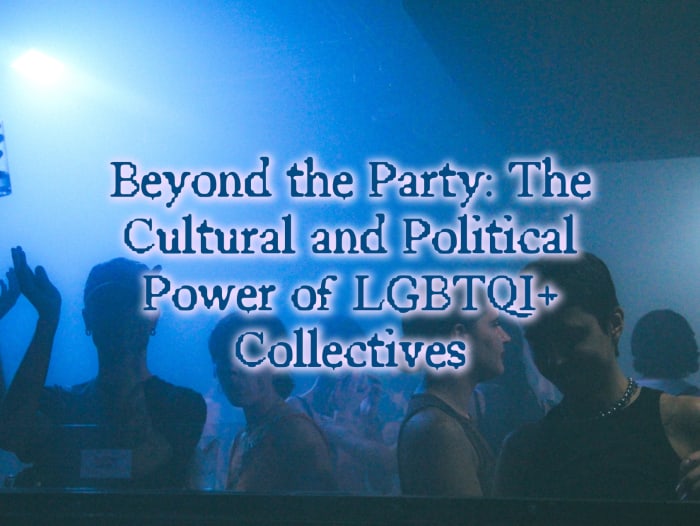
Beyond the Party: The Cultural and Political Power of LGBTQI+ Collectives
Showing up on the dance floor can be a radical act.
Words by Bella Spratley
Culture isn’t untethered from its context. Collectives and associations are a means to create truths and realities. It’s about authority, even if some might shy away from that. When you want to know a truth, you go to an authority on it: linguist friends or WordReference for a translation, Oxford Dictionary for a definition or Urban Dictionary (I’m sorry), your favourite radio station, magazine or DJ collectives for cool new music. It gives that stamp of approval, even if it can still be approached critically. When it comes to gender or sexuality, truth gets more muddled. A bit like selecting music, it’s something that you feel in your body, an impulse, and you also experience or play out with others.
Speaking to LGBTQI+ collectives Eau De Cologne, NON NON NON, ADIRA, Lecken and Me Siento Extraña ahead of their performances at WHOLE festival, we try to better understand how shaping what’s happening on the dance floor interacts with what’s happening on paper. At this moment, just in Europe drastic roll backs have taken place for LGBTQI+ rights in the UK, Italy and Georgia—communities coming together to act out their reality en masse is more urgent than ever. And music is our favourite meeting point.
Materially, connecting in person at a queer party (anywhere in the world) is very different from meeting elsewhere—the context empowers partiers to affirm and/or act out their desires with the knowledge this should be a safe space. In real time, gathering is cultural resistance by humans who are too often made to feel wrong. When a body is legislated against or sidelined by governments, that is political. Whether it’s the spiral on trans rights, particularly for trans women, or workplace discriminations that have real economic impact on queer people, better is needed. Uniting to sincerely protest, petition and support where politicians are failing might be the next steps after meeting at the club. DJ collectives and parties are an organising force and a sort of legitimising one. In the face of violence and erasure, the LGBTQI+ community does not back down. Here, five collectives share their experiences of cultural and political resistance.
Tbilisi
As a queer collective, you create a meeting place for LGBTQI+ people to be their true selves and also campaign for this reality to be a right. What anecdotes come to mind when you think of the political resistance and the parties you create?
To walk alongside so many people from our scene—artists, DJs and club owners—at the United March in Tbilisi back in May brought a sense of urgency and solidarity. We do believe nightlife is political. The dance floor is a place where people gather not only to release and connect, but also to resist, whether it’s the repression of queer bodies, artistic censorship or broader political injustice. For us, this protest was a natural extension of the kind of space we try to create: defiant, expressive and collective.
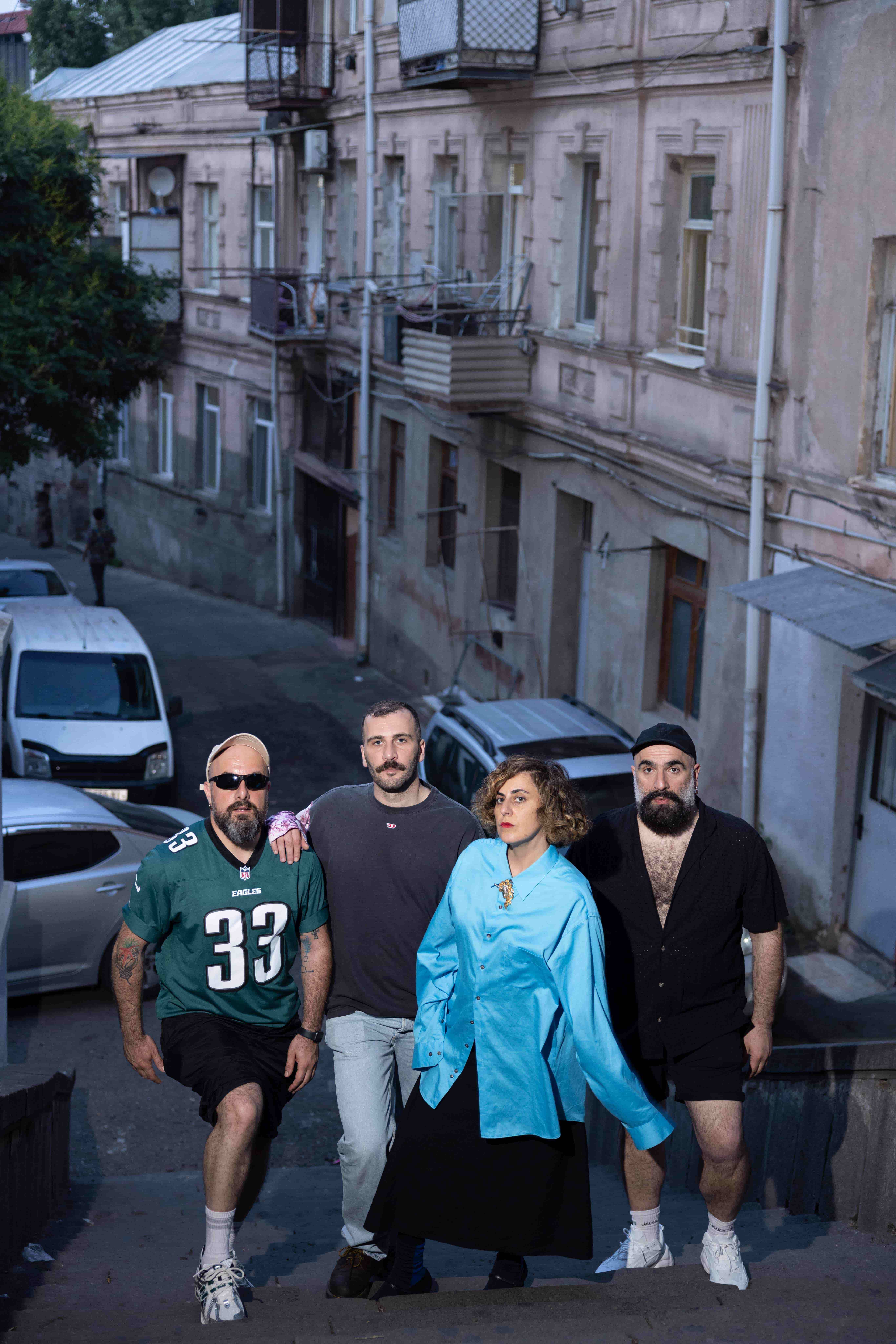
What is the meaning of being seen and heard on the dance floor, particularly in the context of gender and sexuality?
Showing up on the dance floor can be a radical act. Especially in cultures where gender and sexuality are still heavily policed, showing up as your full self and being witnessed in that can make your identity feel tangible, valid and real. There’s a certain magic in the way music, movement and presence allow people to affirm themselves without needing to explain. And today, under suppression and tension, that visibility feels even more powerful. There’s something almost magical about it—a heightened intensity, a quiet defiance glowing through joy and movement. These moments of presence and expression become sacred. For many, the dance floor is the only space where they feel free.
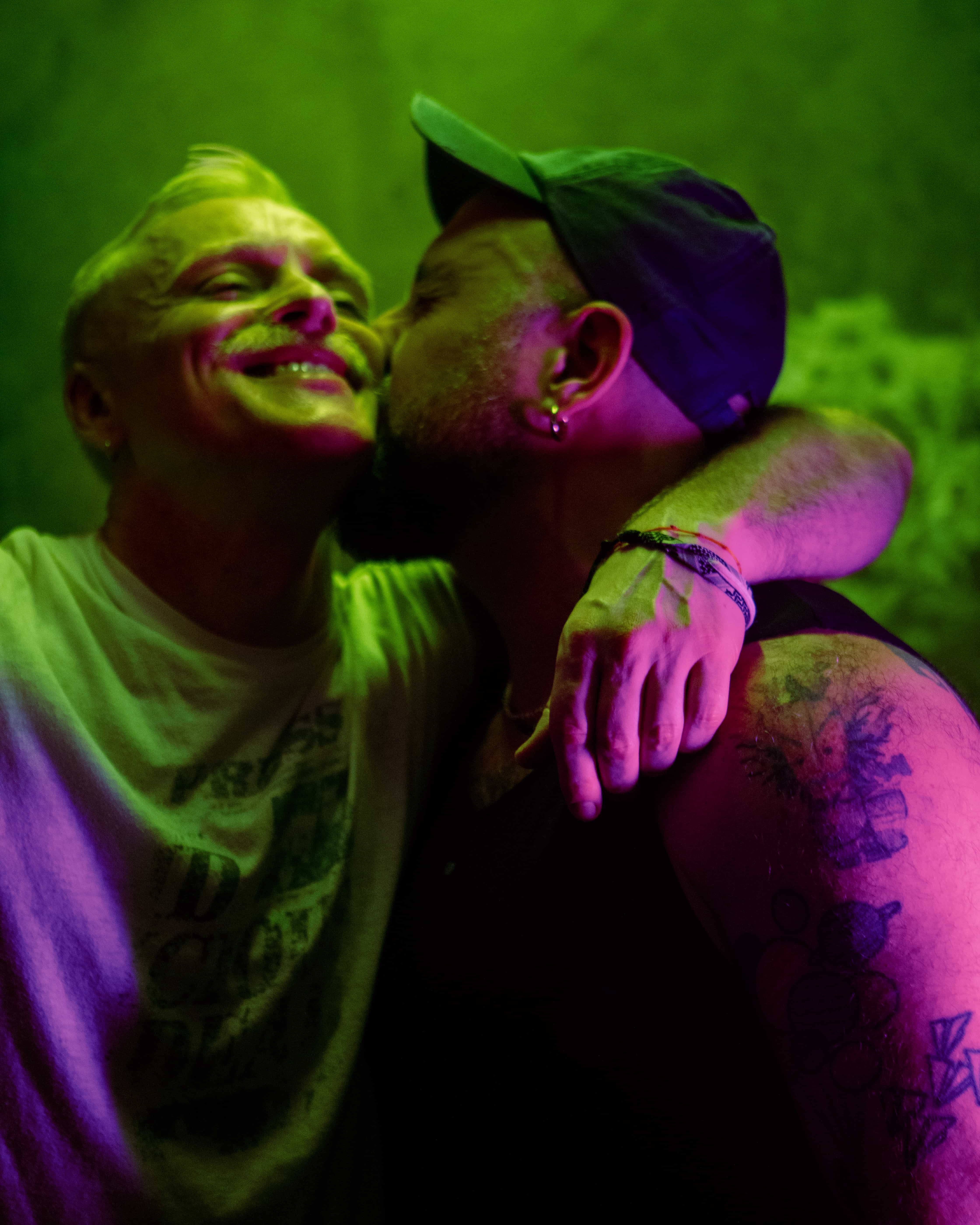
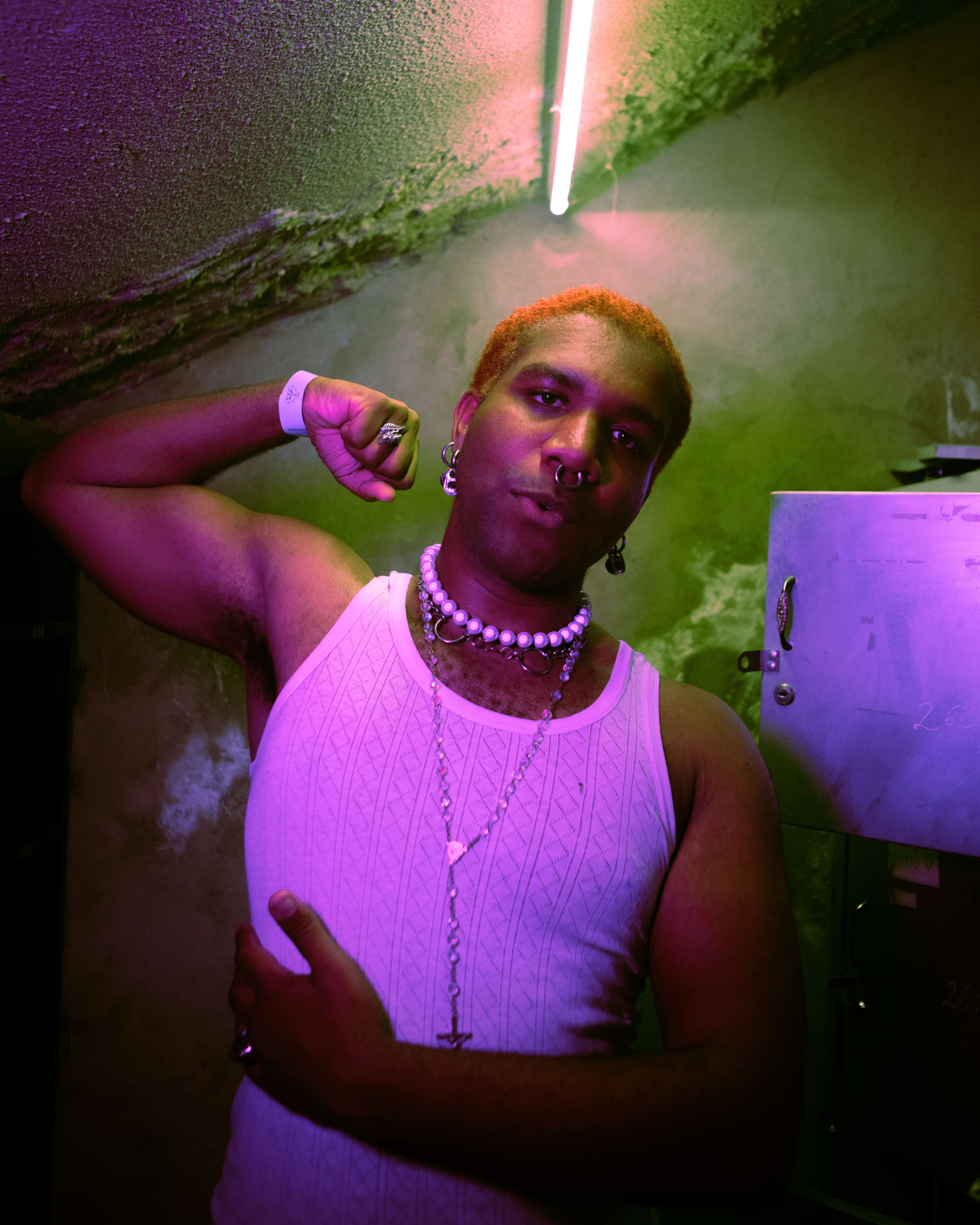
How do you describe the meeting of image with the sound of your parties?
Our musical direction varies—it’s never fully one thing. We move between house and techno, sometimes even a wider range of musical genres. That openness is intentional. We invite artists who aren’t afraid to play with mood and texture and who help create this kind of playful, emotional and unpredictable atmosphere. The sense of fluidity in sound is mirrored in how people show up visually, too. Fashion plays a huge part in our parties. It’s about stepping into another world, a moment where reality bends into something more theatrical, symbolic or just totally wild.
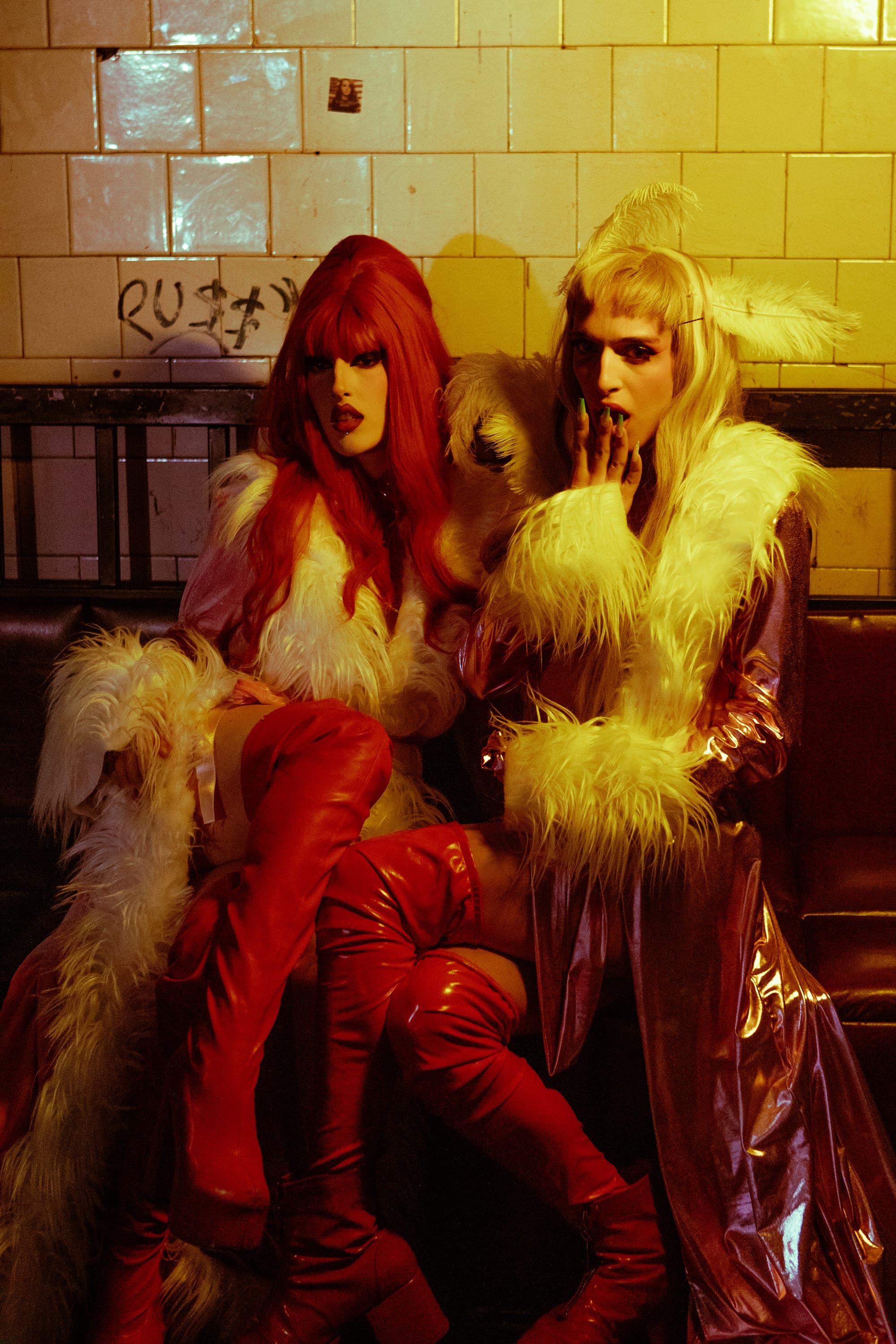
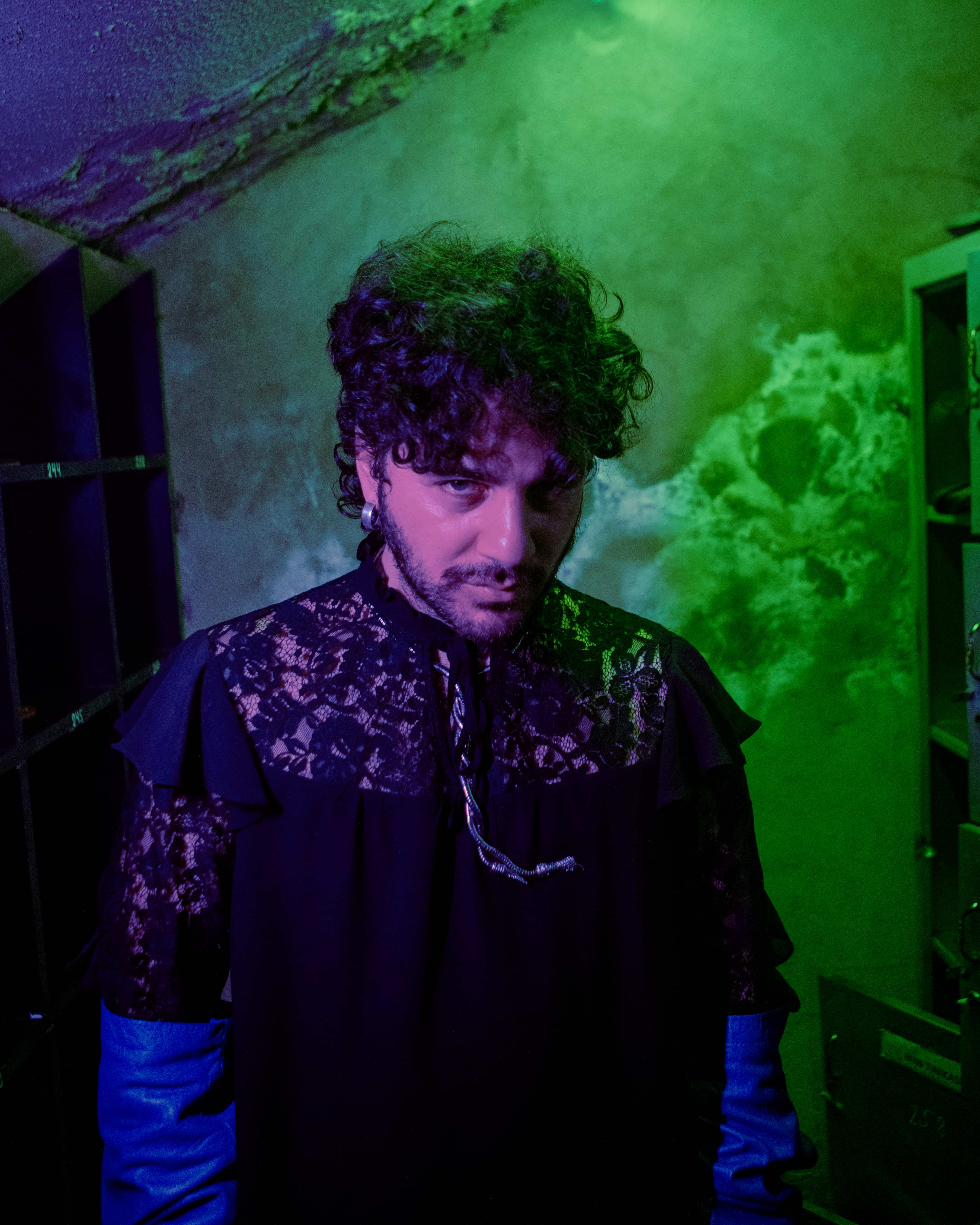
Showing up on the dance floor can be a radical act.
Bangkok
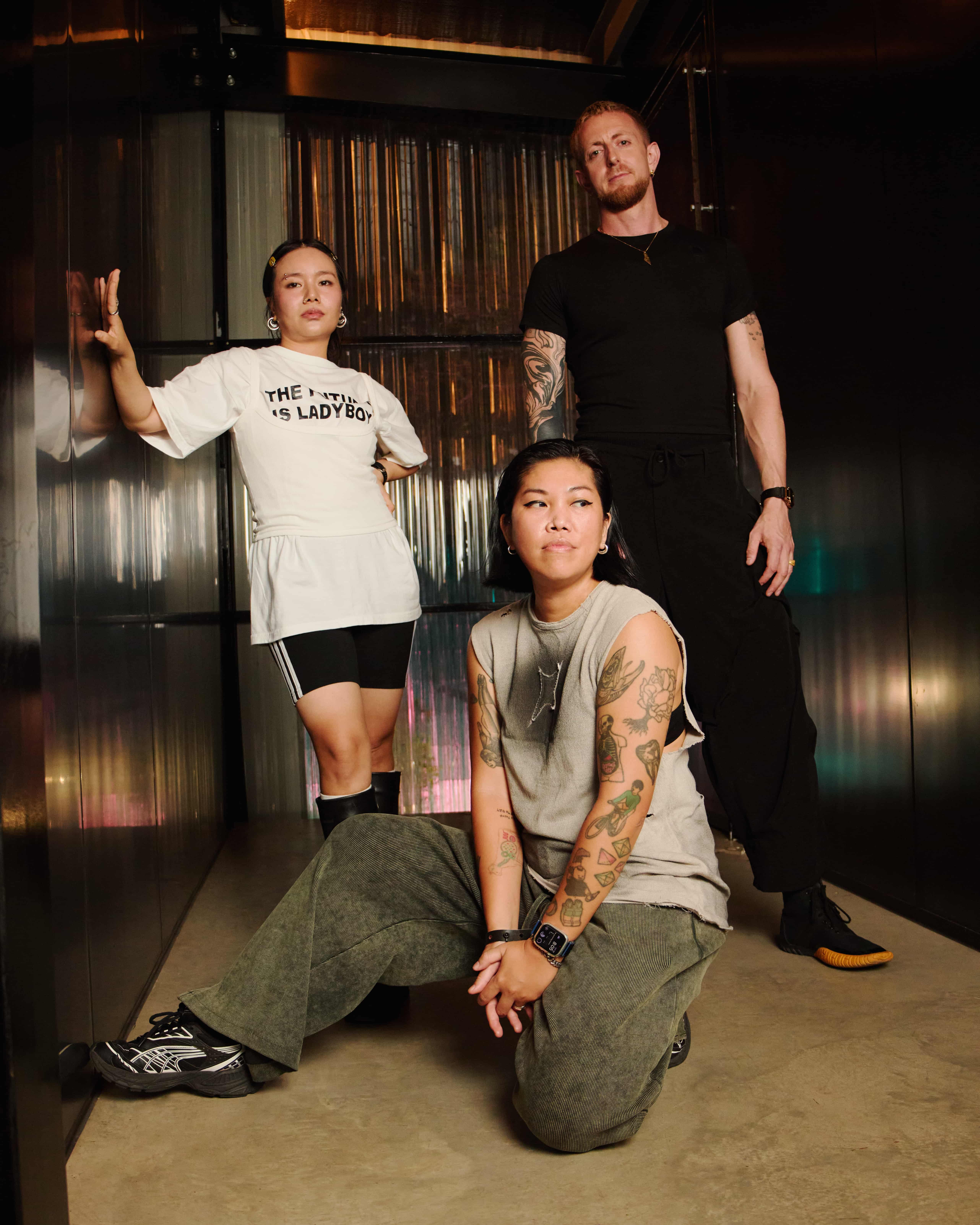
Your collective is dedicated to fostering creativity, connection and equality. Does the party create a moment of shared utopian freedom as an example of what changes are needed?
When we first started NON NON NON, the idea was to show the LGBTQ underground movement in Thailand at a time when we didn’t really have our own space. We wanted to highlight the positive side of nightlife, not just the party. We try to create a space that feels warm, safe and welcoming the moment people walk in. How can we create a kind of vibration that reaches the people in our community who aren’t outgoing or haven’t come out so they feel included even if they never make it to one of our events? That’s why we’ve always focused on the quality of the music and the message behind it. Today, NON NON NON isn’t just a home for queers—it’s a space that includes all genders, as long as there’s love and respect. That’s the real utopia we’ve been dreaming of.
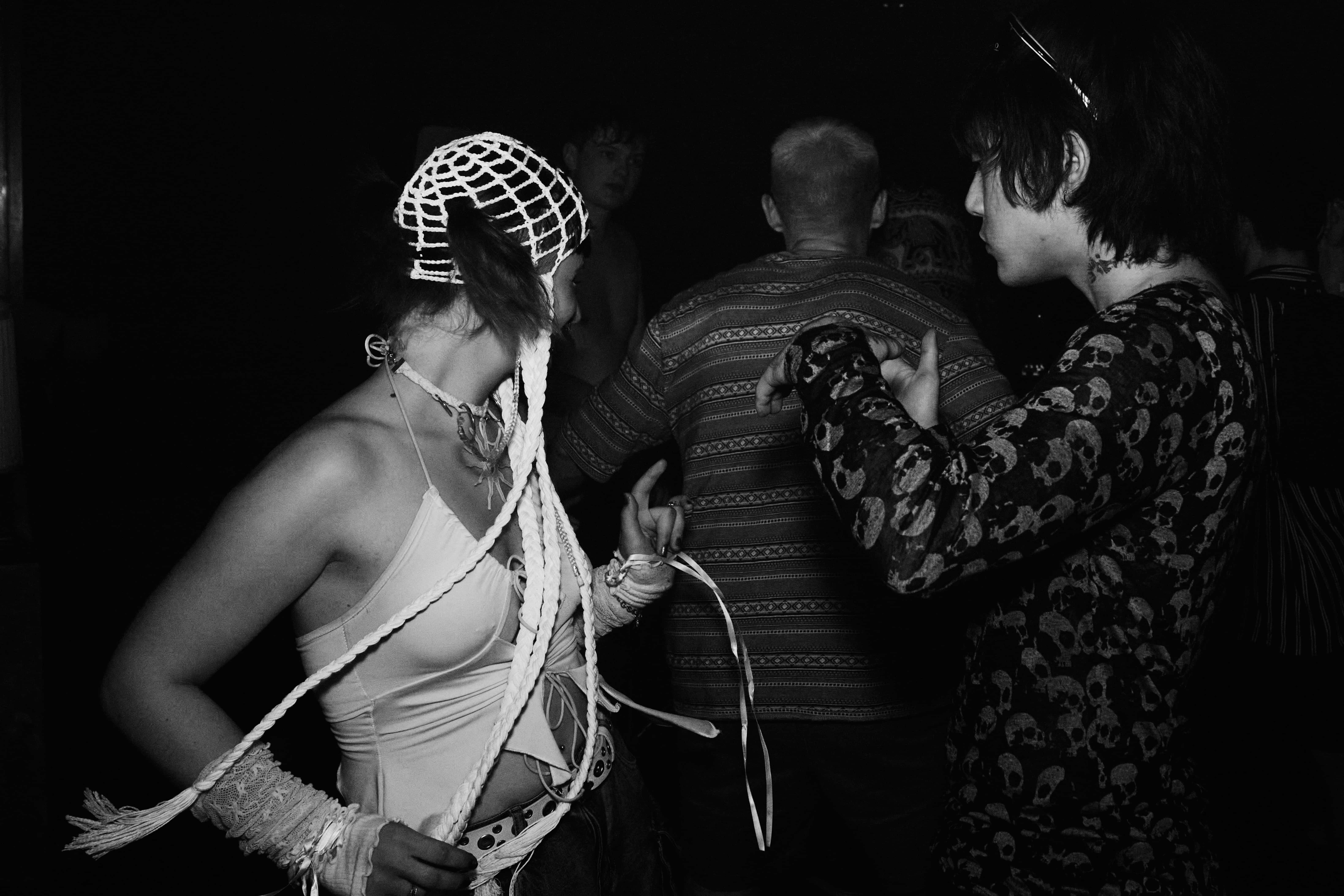
Do you agree that mobilising the LGBTQI+ community is the best way to enact change and shape our reality?
It’s very important. When more people are included, we gain diverse perspectives that help shape the community. But real change also needs harmony—shared energy and connection. One person can’t create that vibration alone. It’s powerful when people with the same vision come together.
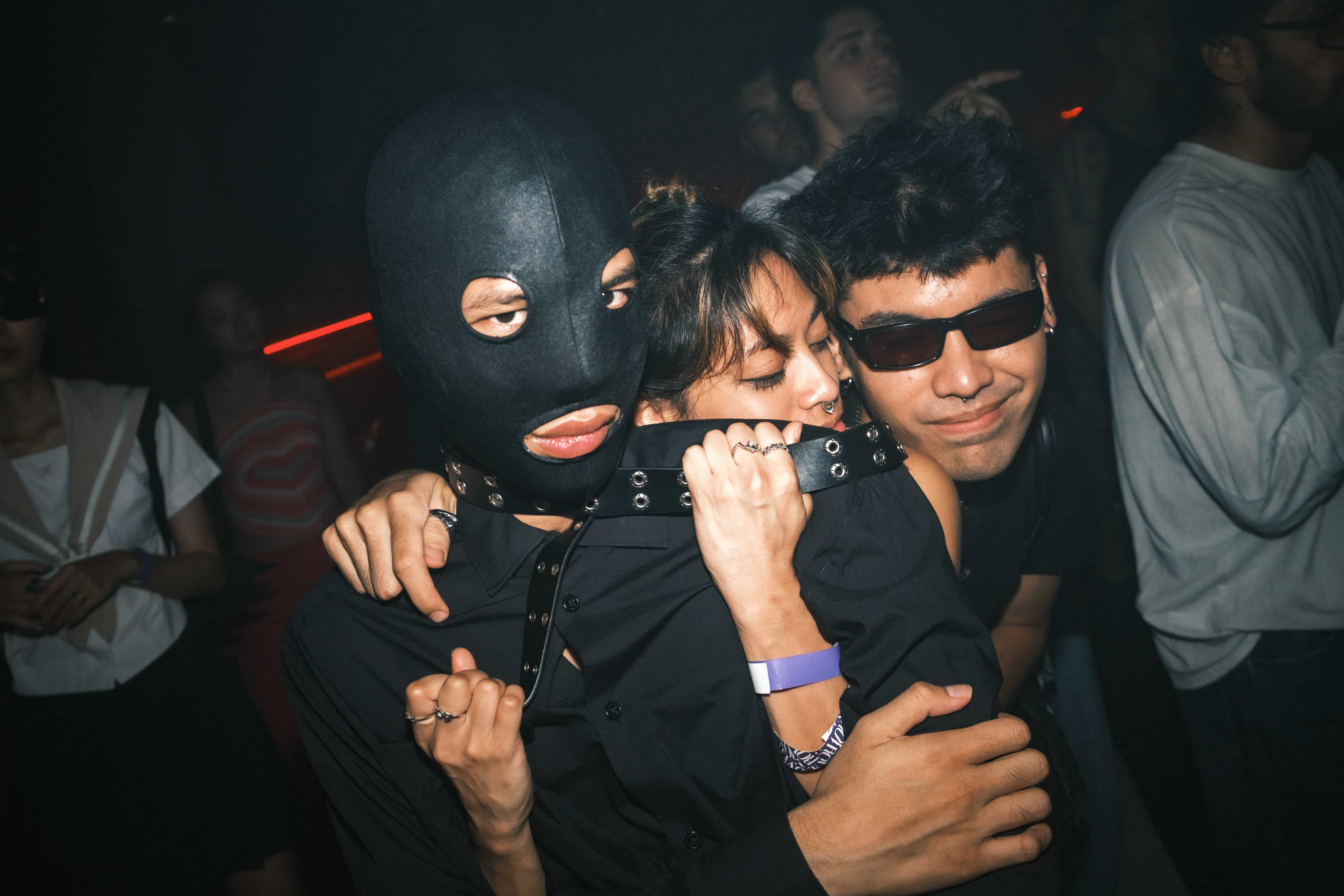
Organising events as a collective means there are more connections to be woven. Have any meetings of minds led to an improved sense of resistance in the collective or wider community?
Every time we build something, there is the question of, will this stay with people beyond just one night? Entertainment is just one layer. What matters more is creating something meaningful and long-term. That’s why we’ve developed into offering immersive experiences through art, creative coding, technology, DJ workshops, classes and mentorship. These elements deepen the connection within the community and create space for learning, support and resistance through creativity.
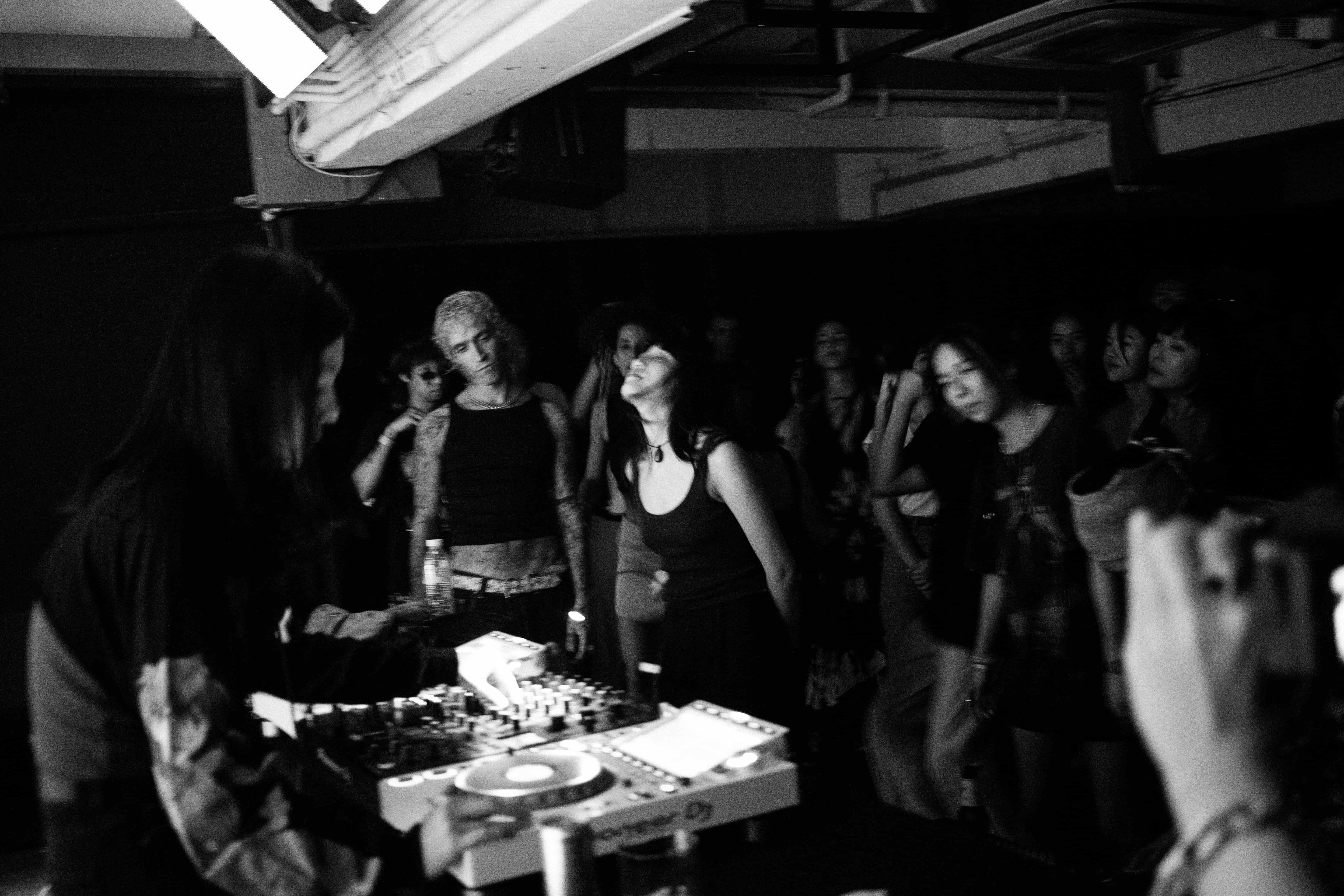
It’s powerful when people with the same vision come together.
Berlin
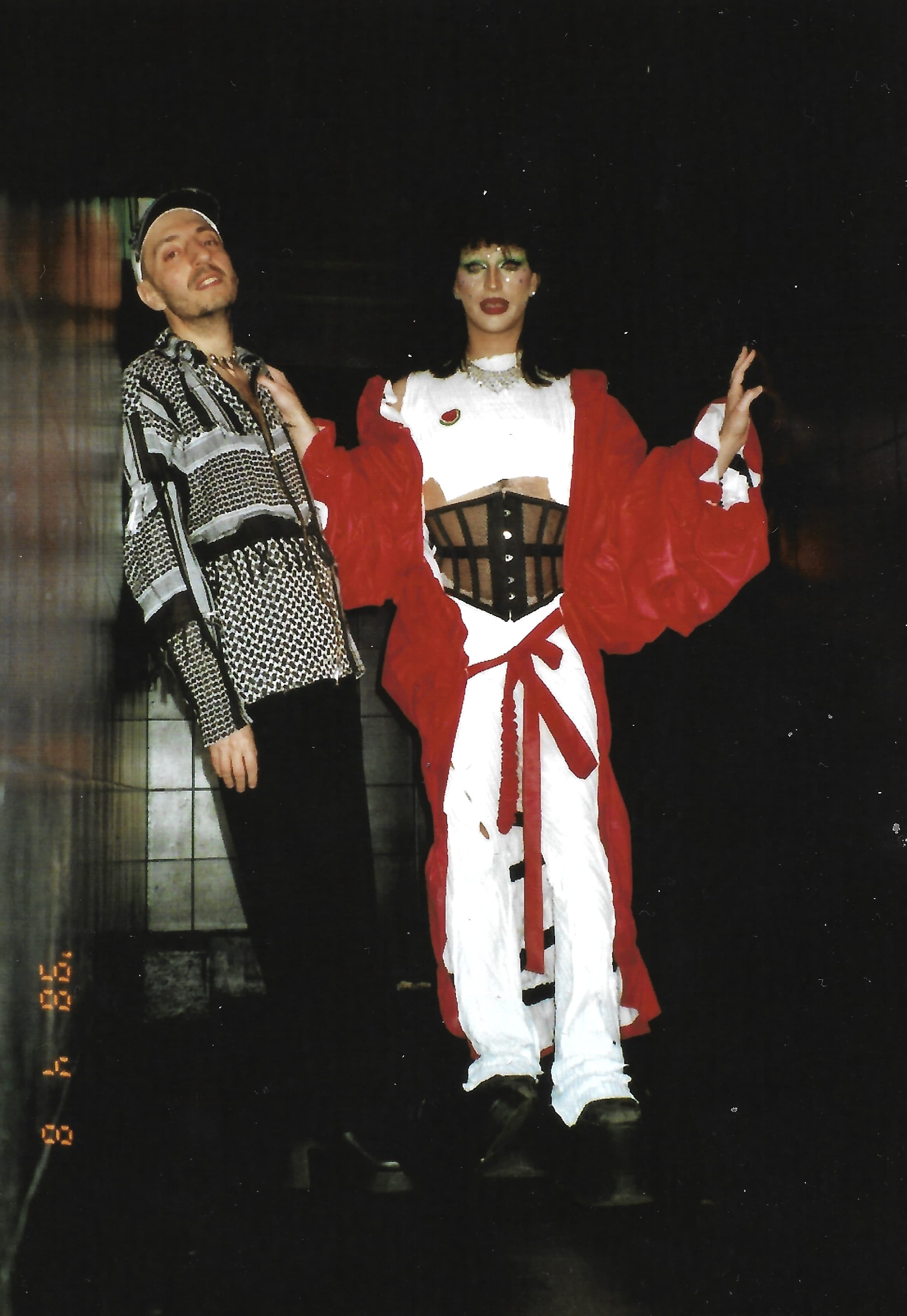
Music created or curated by and for LGBTQI+ people is a form of defiance internationally. What does making space to exist mean to you?
As a queer-Arab collective based in Berlin, we’re used to being excluded either because of our queerness, our Arab identities, or both at once. Since the last year and a half, this reality has intensified, creating a climate of fear and silencing. That’s why creating spaces where marginalised people feel safe and bold enough to express themselves on their own terms is crucial. Not to hide, but to heal, to connect and to empower each other.
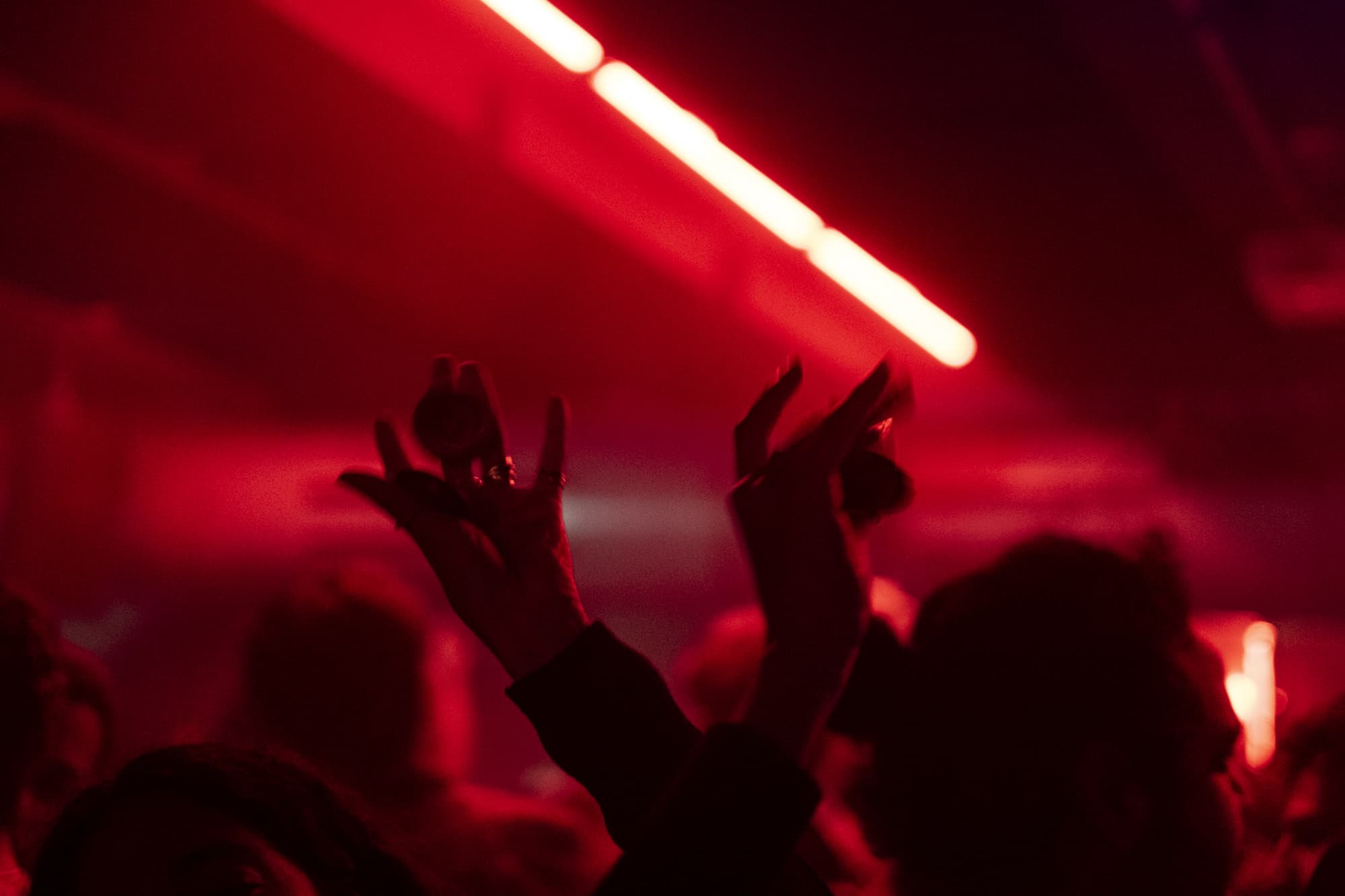
When a body is being legislated against, it becomes politicised. How does your collective respond to that?
When our bodies and thoughts are under pressure simply for not aligning with right-wing conservative ideals or the selective causes of the liberal left, we hold each other closer. In these hostile times, we respond with collective care and radical solidarity. Our answer to division is unity. Our resistance is rooted in building community, showing up for one another and refusing to disappear.
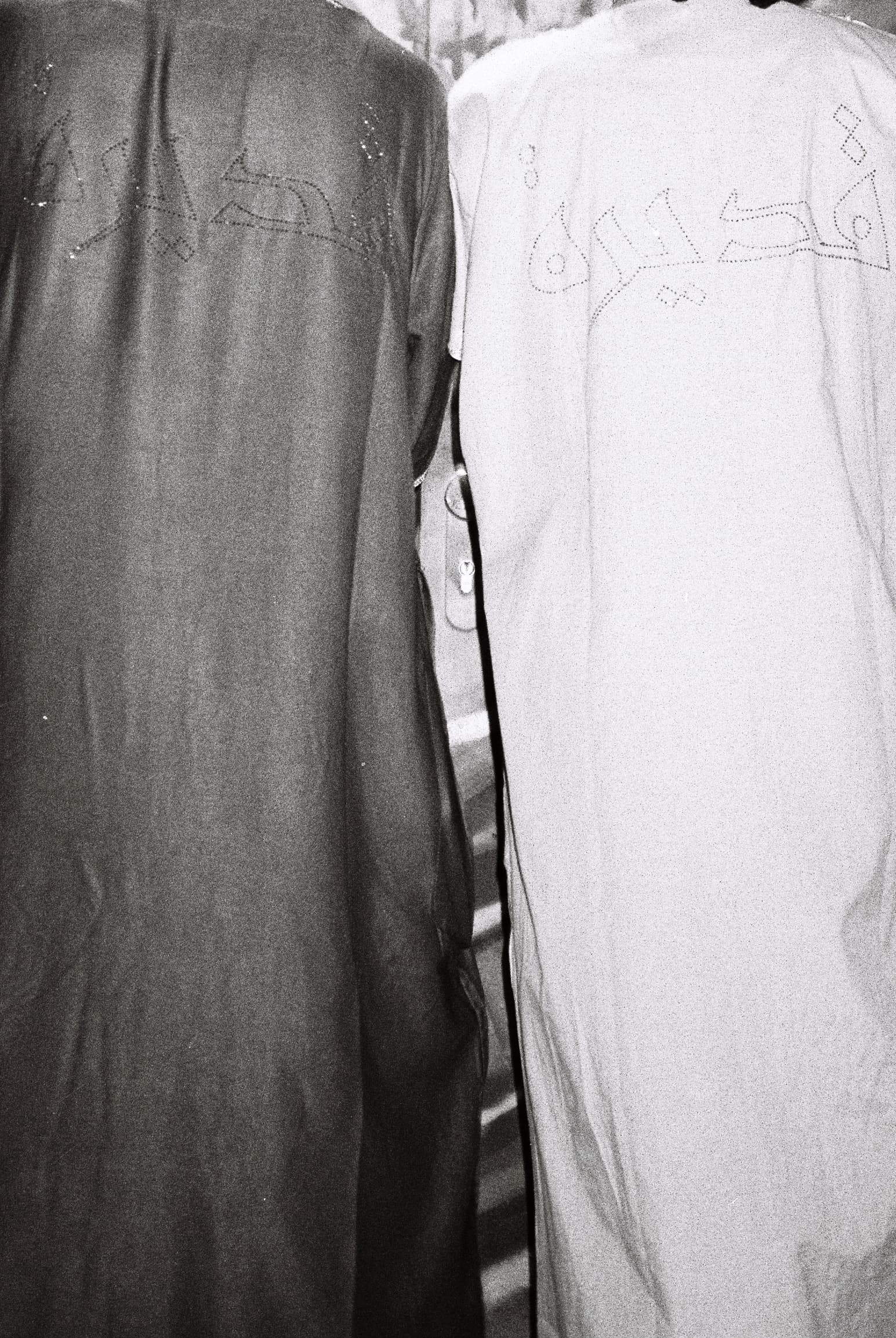
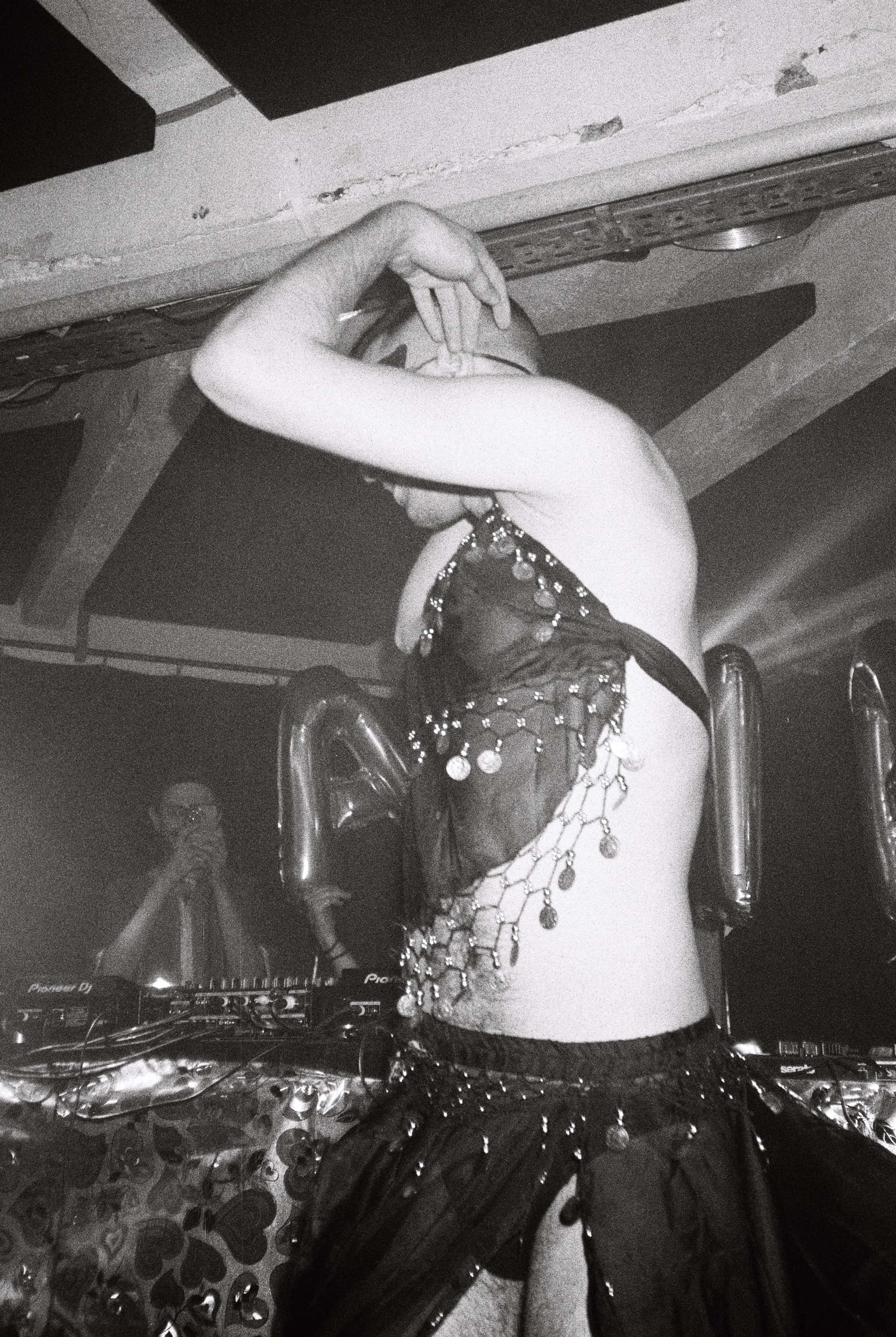
How is the principle of “realness” significant to queer performance collectives these days?
For us, “realness” means being unapologetically ourselves, knowing it won’t always be liked and being fine with that. We don’t expect everyone to love what we do, just as we don’t love everything others put out there. What matters is staying true to our sound, our style and our community. Realness means being honest, imperfect and deeply loyal to who we are and who we stand with.
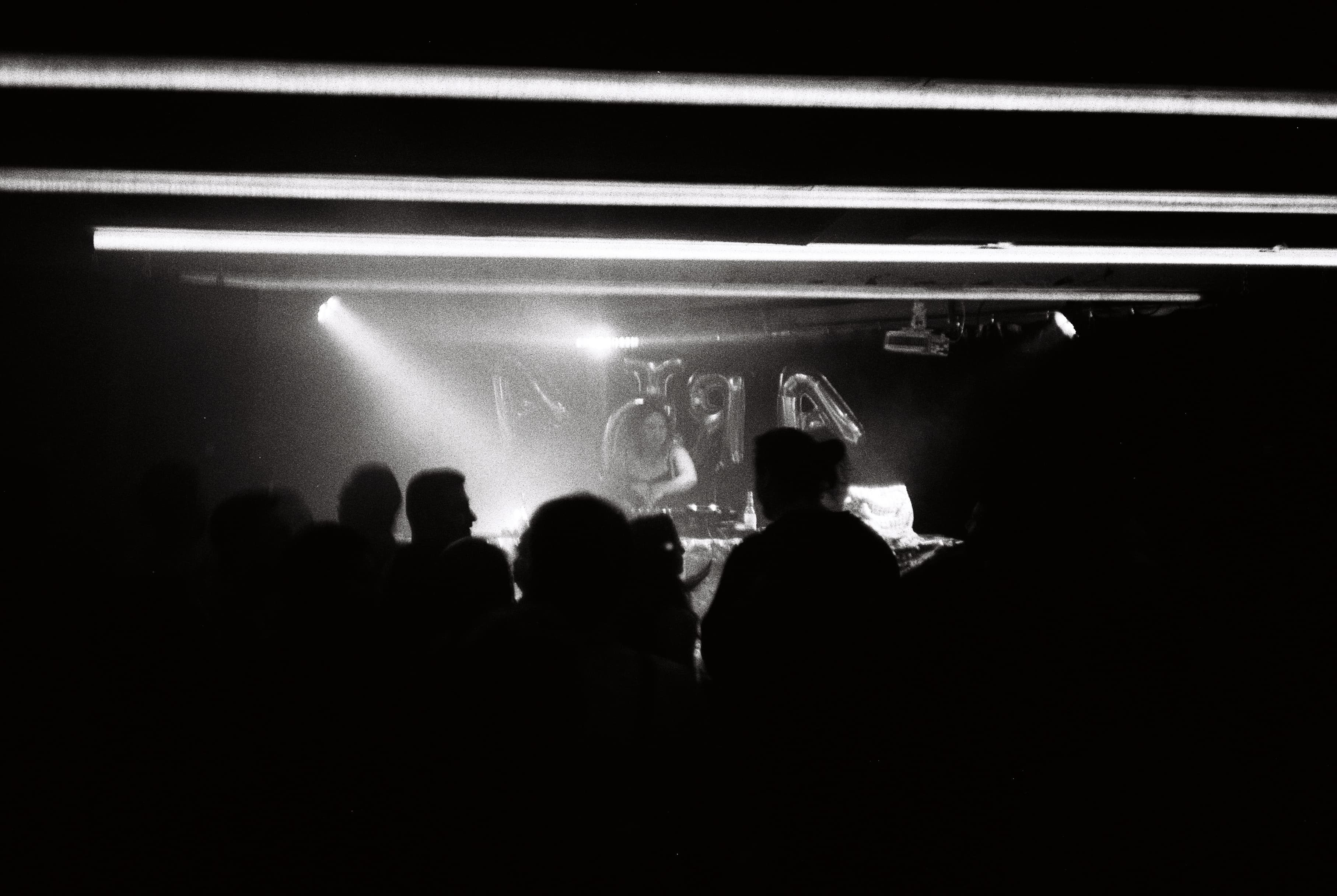
In these hostile times, we respond with collective care and radical solidarity
Berlin
Music might be an organising force, but it’s not the final destination or ultimate gesture of rebellion. What are the next steps after we get home from the party to make lasting change for the LGBTQI+ community?
At Lecken, we see the party not as an escape, but as a strategy. A strategy for nurturing the seeds of liberation and collective solidarity against dystopian capitalism and imperialism. After the party, and even more so the festival, we want to make sure we follow up with our loved ones. Send care notes for a soft recovery, check in about the fragile and tender details we were made privy to. Plan sober hangouts and suggest gatherings outside the rave to sediment the knowledge that we don't only care for each other in high states. The dance floor is a space where bodies rehearse freedom. But after the party, the work continues in how we support and pay attention to each other—emotionally, materially and politically.
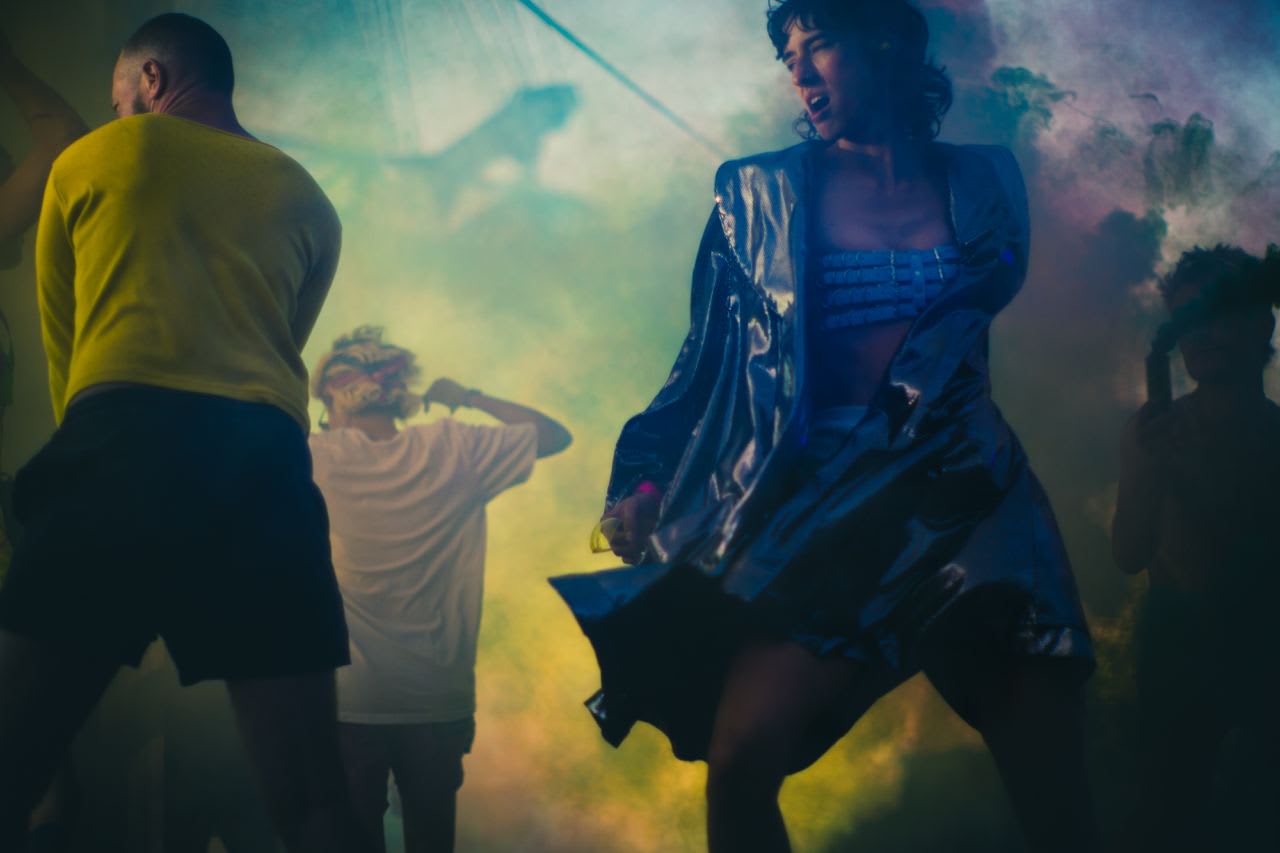
What makes your members feel real and free?
Especially in the present iteration of Lecken, we emphasise an ethos of "liberatory protagonism," a concept we borrow from writer Hannah Baer on rave and revolution. "The pillars of nightlife," she writes, "the ones who will sustain and build and deepen the culture, will have deep reverence for the protagonism of every single person who enters the party, at least until a cop comes in.” Lecken is committed to a plurality of pleasures. We are interested in hosting a multitude of communities and singularities—and not othering the unfamiliar as unethical. This is not just a plea for inclusion, but the idea that a good rave will push against hierarchies and zones of exclusivity, whether they stem from celebrity culture or identity politics. The rave must remain underground, materially accessible and a place where the margins and the weird can gather, or it will be nothing at all.
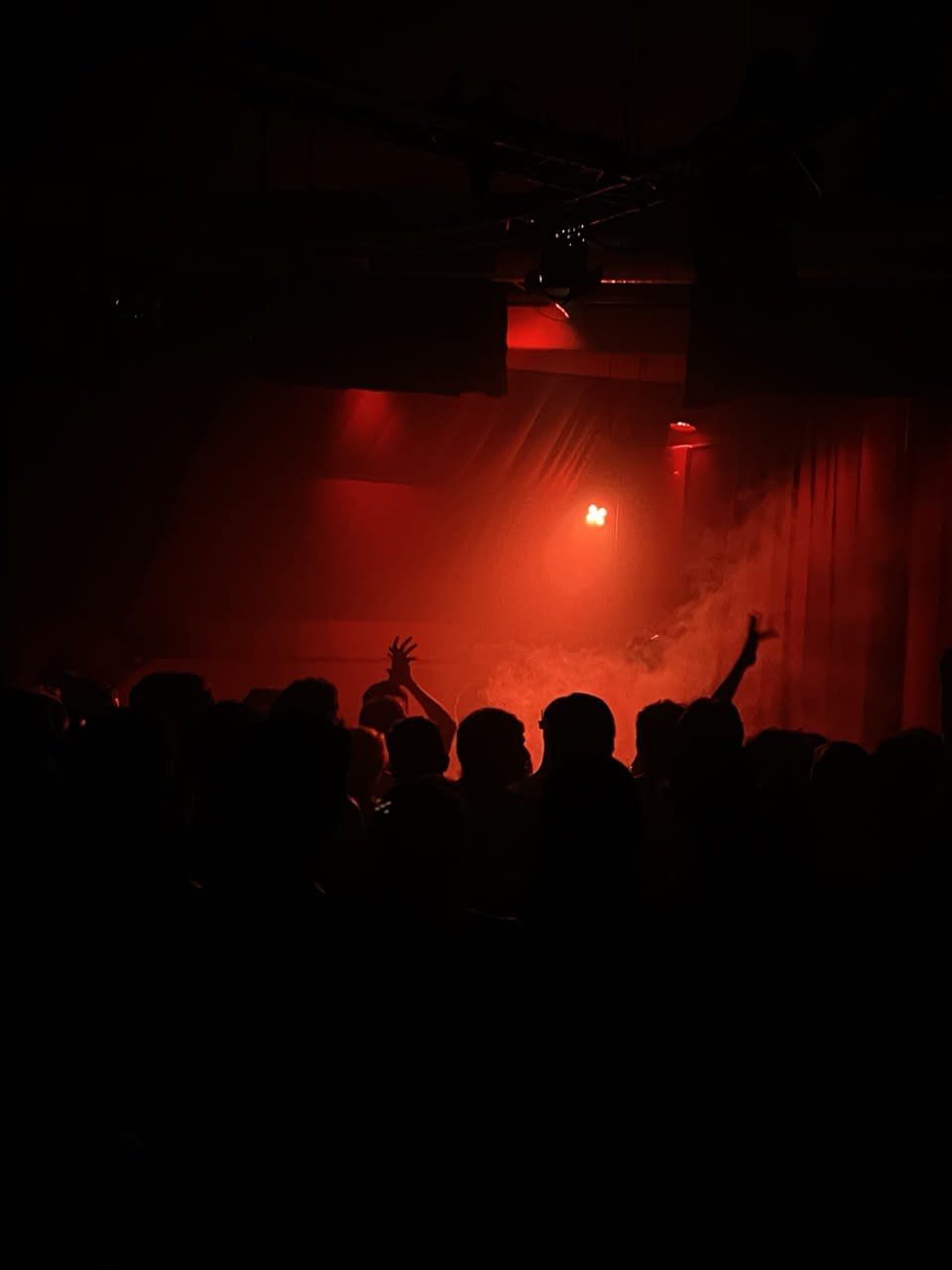
The dance floor is a space where bodies rehearse freedom.
Barcelona
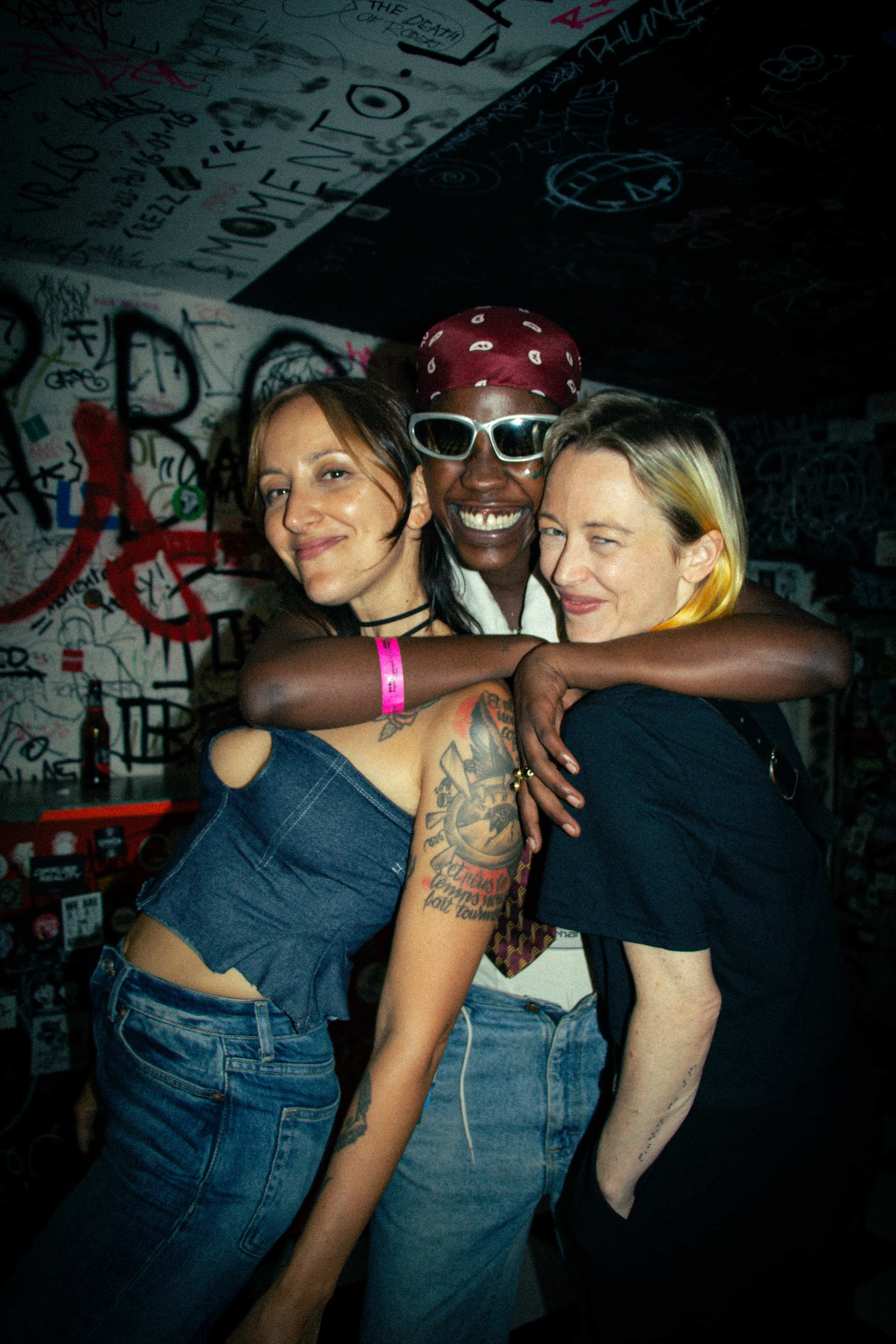
Your name encapsulates reclaiming an othered identity, extraña or strange. Music and language are so closely tied since lyrics can be considered as contemporary poetry. What’s your ideal future for reshaping queer language?
We feel that queer language is not only in constant transformation but also a form of resistance. We play with the margins, with the words that have named us—and also with the ones we choose to rewrite ourselves. Extraña has always been an adjective used to describe us from the outside: as something that doesn’t quite fit. But once we reclaim it for ourselves, it becomes a space we inhabit with pride. We would love for queer language to become even more collective, fluid and open to the visceral, tenderness, the unreadable. No single way of naming ourselves, no need to constantly explain or justify the ways we do.
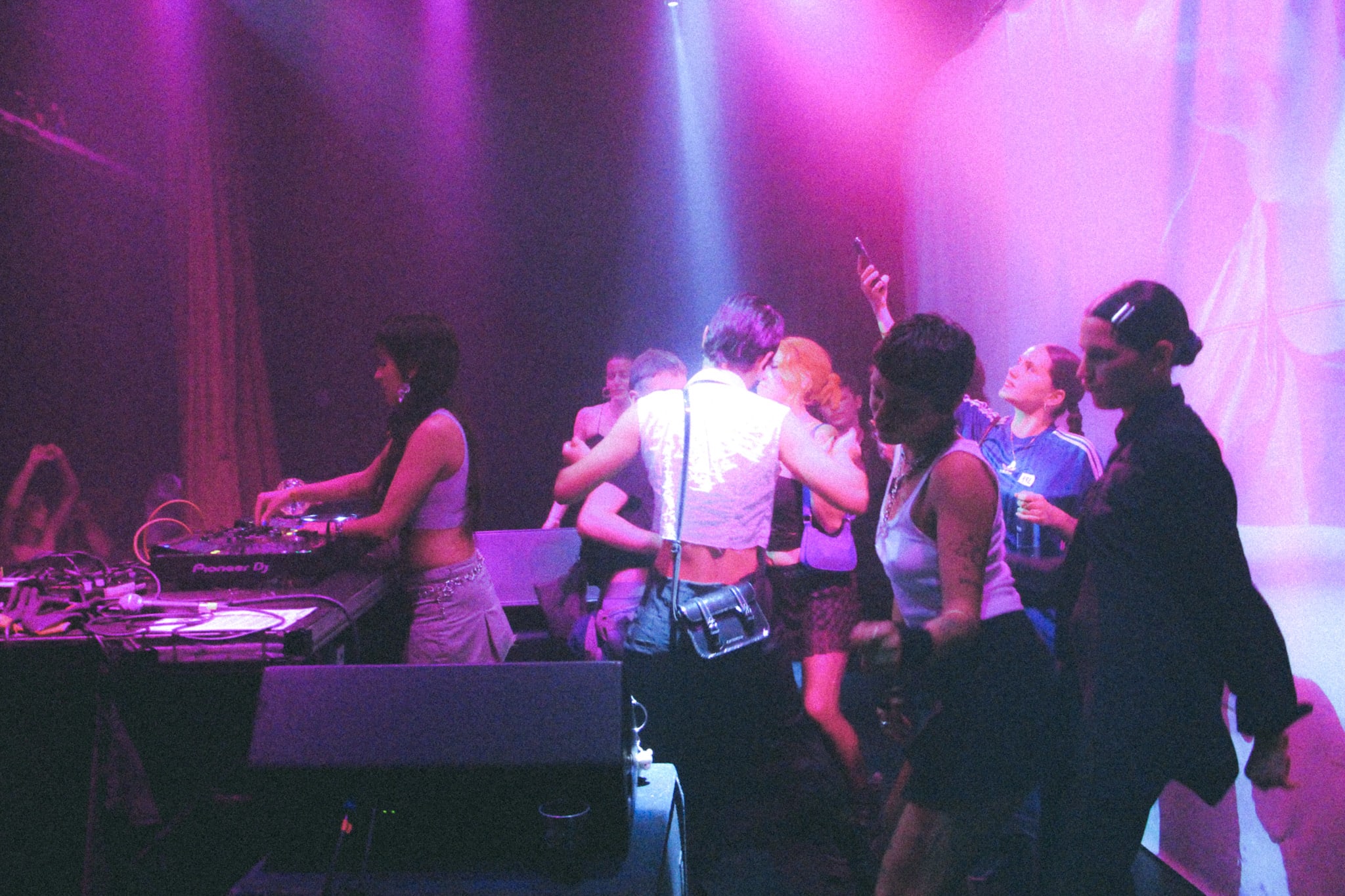
What sort of power does the music collective have in these trying times for the FLINTA* community?
We believe FLINTA* collectives are spaces where we reimagine possible futures and make the kind of realities tangible we want to live in: lineups full of dissident bodies, genre-fluid sounds and a real commitment to showcasing the vast talent within our community. Coming together to dance, care for each other and co-create is, in itself, an act of resistance. At Me Siento Extraña, we try to create spaces that centre care, play and connection among FLINTA* people. We support one another so we can rise together, in collectivity.
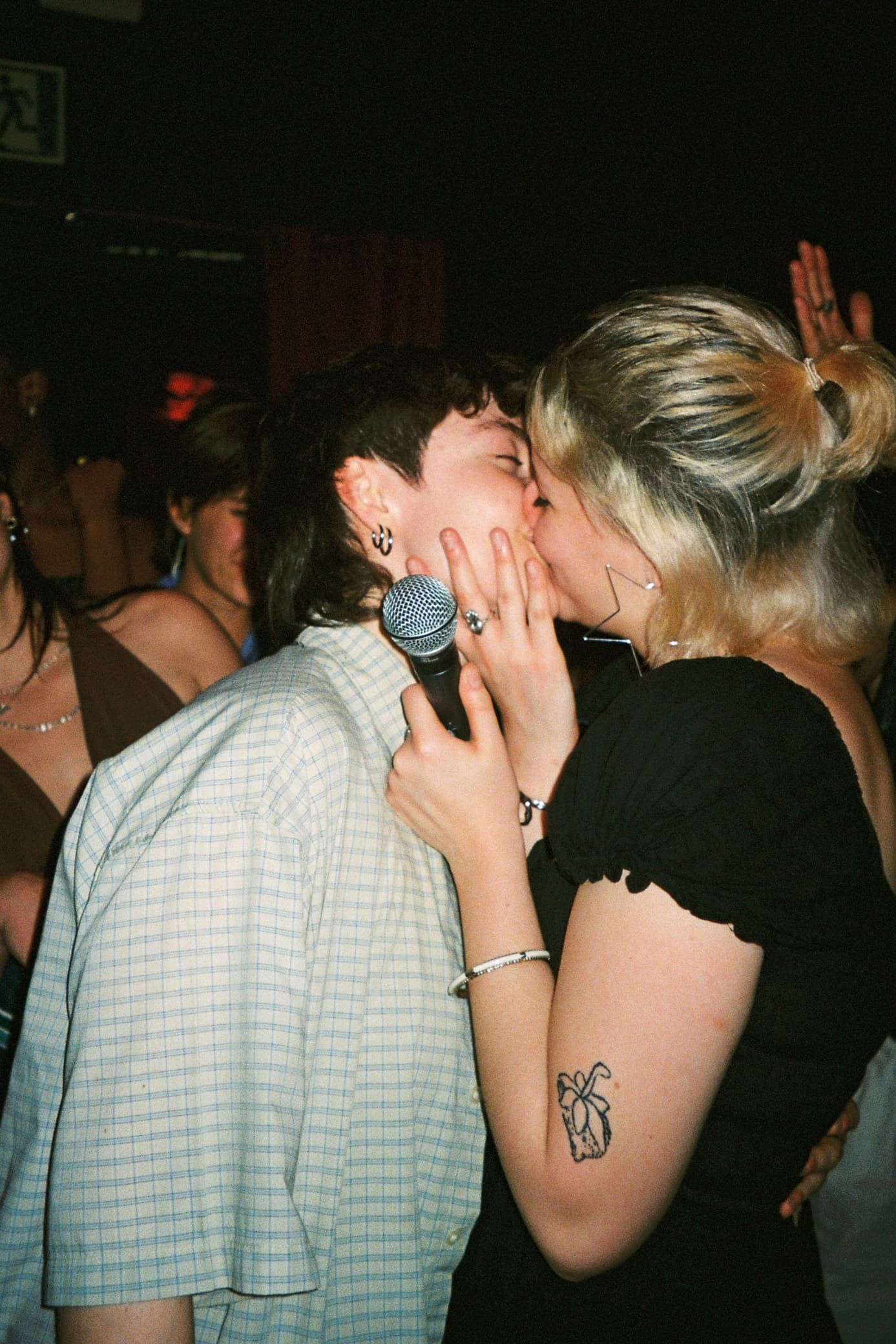
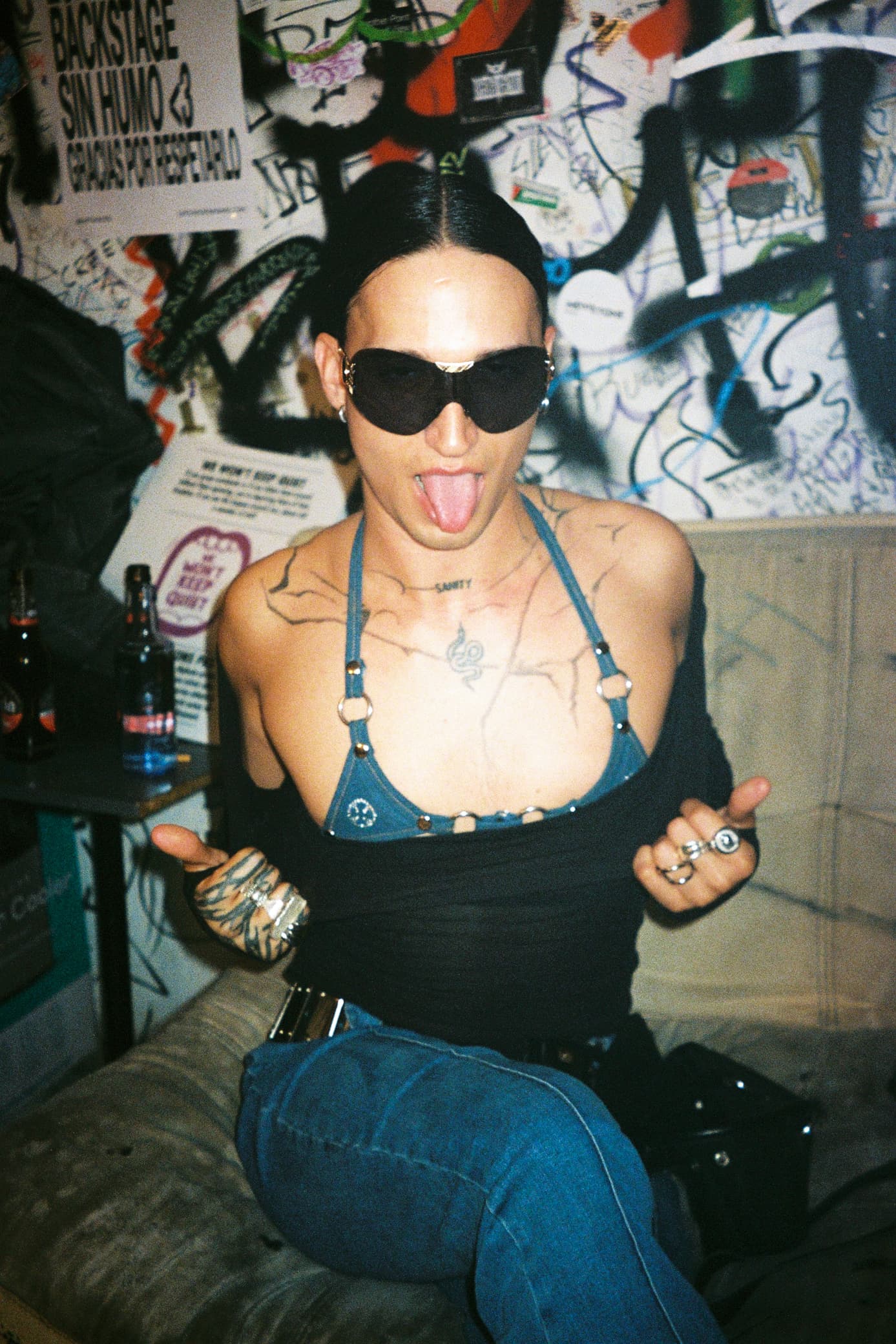
What Does your output have a political value or intention?
For us, politics lie in how things are done: under what conditions, with whom, from what position and with what kind of care. We organise through an intersectional and feminist lens, and we believe that joy and desire are also political languages. Our existence as a queer FLINTA* collective is already a statement, not one of solemnity, but of creative power and shared expression.
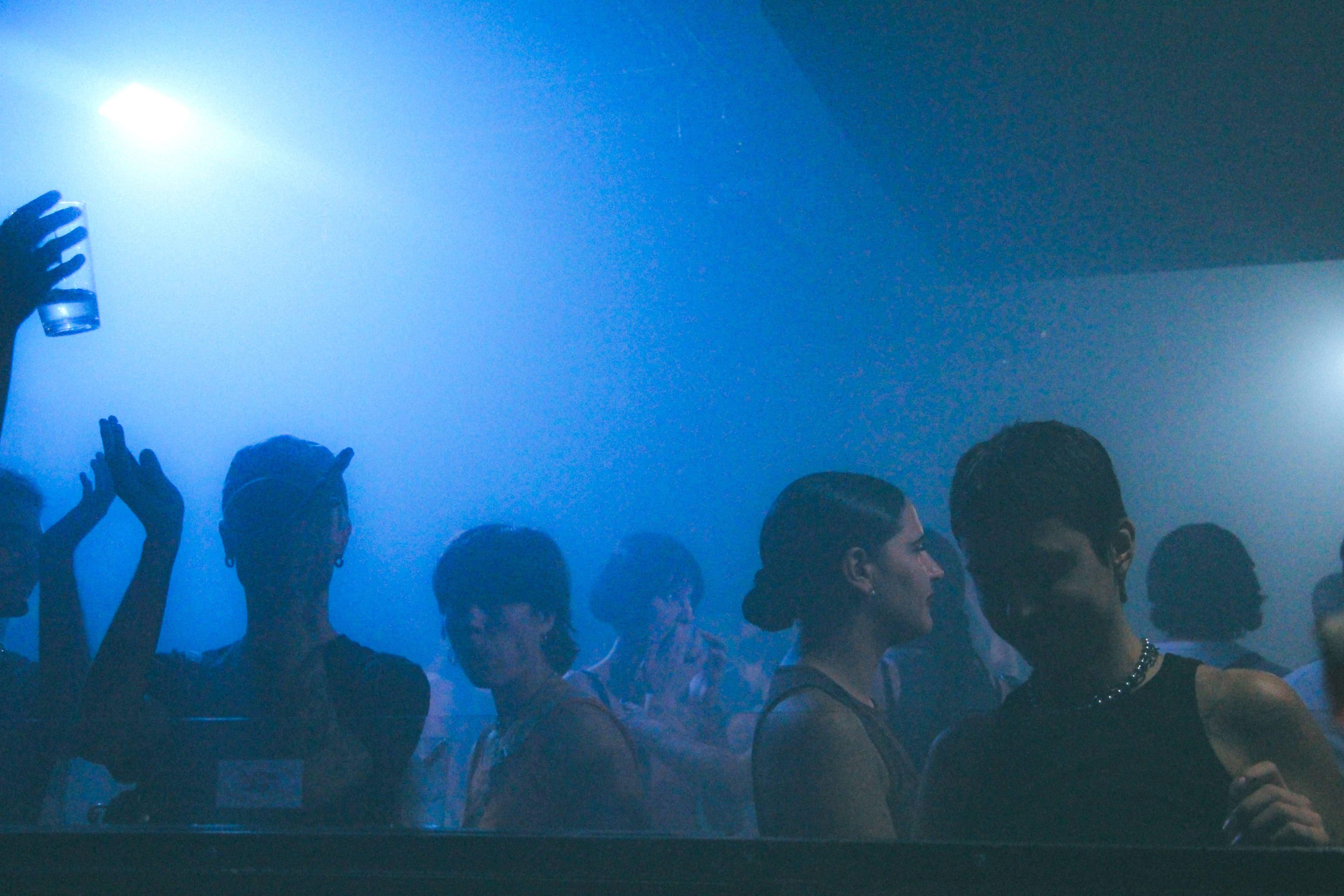
We support one another so we can rise together, in collectivity.
WHOLE Festival will take place July 18th—21st 2025. You can get tickets here.
Credits
Images by Eau De Cologne & Dato Koridze, Levan-Leko Tchkonia
Images by NON NON NON
Images by ADIRA & Tansu, Ceren Saner, Cora Hamilton
Images by Lecken & Ali Bay
Images by Me Siento Extraña & Imogen
